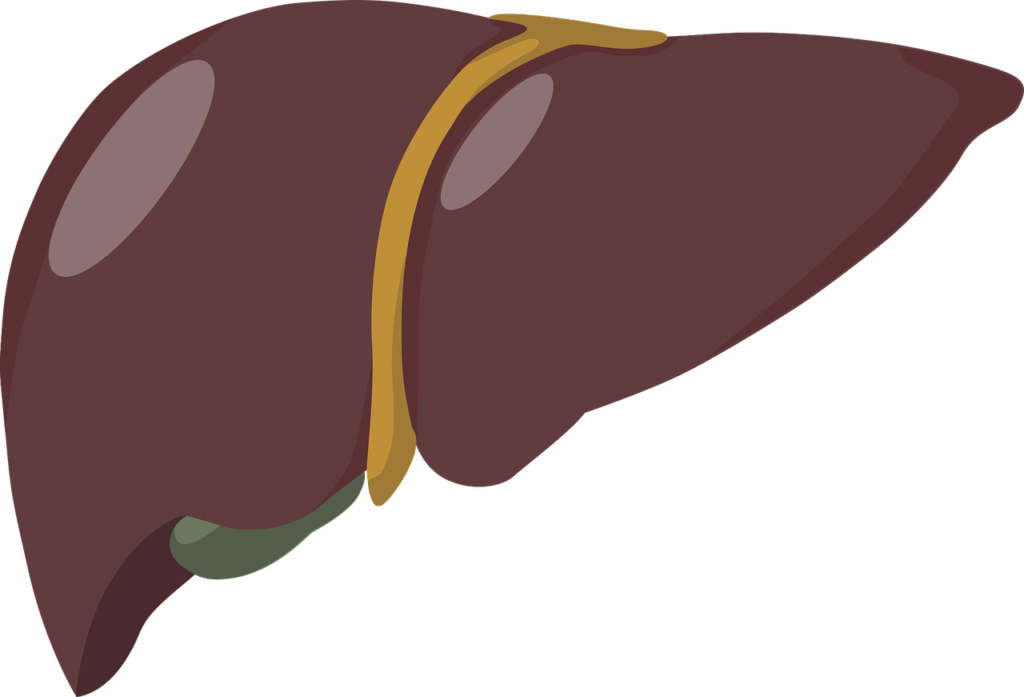Liver Cirrhosis: Understanding Causes, Symptoms, and Treatment

Liver cirrhosis is a progressive liver disease characterized by the scarring of liver tissue, leading to impaired liver function. The liver, one of the largest organs in the body, plays a vital role in metabolism, detoxification, and nutrient storage. Understanding the causes, symptoms, and treatment options for liver cirrhosis is crucial for managing the condition effectively.
Causes of Liver Cirrhosis
Liver cirrhosis may arise from a variety of factors, such as
Alcohol Consumption
Excessive and prolonged alcohol consumption can damage liver cells, leading to inflammation and scarring of liver tissue.
Hepatitis Infections
Chronic infections with hepatitis B or hepatitis C viruses can cause liver inflammation and eventually lead to cirrhosis if left untreated.
Non-alcoholic Fatty Liver Disease (NAFLD)
NAFLD is a condition characterized by the accumulation of fat in the liver, often associated with obesity, insulin resistance, and metabolic syndrome.
In certain instances, NAFLD can advance to cirrhosis.
Chronic Viral Hepatitis
Chronic viral infections, particularly hepatitis B and C, can cause ongoing liver inflammation, leading to cirrhosis over time.
Autoimmune Diseases
Autoimmune diseases such as autoimmune hepatitis, primary biliary cirrhosis, and primary sclerosing cholangitis can trigger immune-mediated damage to the liver, resulting in cirrhosis.
Genetic Factors
Inherited conditions such as hemochromatosis, Wilson’s disease, and alpha-1 antitrypsin deficiency can predispose individuals to liver cirrhosis.
Symptoms of Liver Cirrhosis
The manifestations of liver cirrhosis can differ depending on the extent of the condition. Typical symptoms encompass:
- Fatigue and weakness
- Jaundice (yellowing of the skin and eyes)
- Easy bruising and bleeding
- Swelling in the abdomen (ascites)
- Itchy skin
- Mental confusion (hepatic encephalopathy)
- Weight loss
- Nausea and loss of appetite
Diagnosis of Liver Cirrhosis
Diagnosing liver cirrhosis typically involves a combination of medical history, physical examination, and diagnostic tests, including:
- Physical examination to assess liver enlargement and signs of cirrhosis
- Blood tests to evaluate liver function, assess for infection, and check for signs of liver damage
- Imaging tests such as ultrasound, CT scan, or MRI to visualize the liver and assess for signs of cirrhosis
- Liver biopsy to obtain a sample of liver tissue for microscopic examination and confirmation of cirrhosis
Treatment Options for Liver Cirrhosis
Treatment for liver cirrhosis aims to slow disease progression, manage complications, and improve quality of life. Treatment options may include:
- Modifying one’s lifestyle by refraining from alcohol, adhering to a nutritious diet, and engaging in regular exercise
- Medications to manage symptoms, control complications, and improve liver function
- Liver transplant for eligible candidates with advanced cirrhosis and liver failure
Prevention of Liver Cirrhosis
Preventing liver cirrhosis involves adopting healthy lifestyle habits and addressing underlying risk factors. Strategies for prevention include:
- Limiting alcohol consumption
- Vaccination against hepatitis B
- Avoiding high-risk behaviors such as unprotected sex and sharing needles
- Maintaining a healthy weight through diet and exercise
- Regular medical check-ups for early detection and treatment of liver disease
Complications of Liver Cirrhosis
Liver cirrhosis may result in a range of complications, such as:
- Portal hypertension, which can cause swelling of the abdomen (ascites), enlarged veins (varices), and spleen enlargement
- Ascites, a buildup of fluid in the abdomen due to impaired liver function
- Hepatic encephalopathy, which entails a deterioration in brain function caused by liver failure
- Increased risk of liver cancer (hepatocellular carcinoma)
Living with Liver Cirrhosis
Managing liver cirrhosis requires ongoing medical care and lifestyle adjustments. Individuals with cirrhosis are encouraged to:
- Follow a healthy diet low in salt and processed foods to reduce fluid retention and minimize strain on the liver
- Attend regular medical appointments to monitor liver function, manage complications, and adjust treatment as needed
- Seek support from healthcare providers, support groups, and online resources to cope with the challenges of living with liver disease
Conclusion
Liver cirrhosis is a serious condition that can have significant implications for health and quality of life. By understanding the causes, symptoms, and treatment options for liver cirrhosis, individuals can take proactive steps to manage the condition effectively and improve long-term outcomes.
FAQs (Frequently Asked Questions)
- Can liver cirrhosis be cured?
- While there is no cure for liver cirrhosis, early detection and treatment can help slow disease progression and improve quality of life.
- What lifestyle changes can help prevent liver cirrhosis?
- Limiting alcohol consumption, maintaining a healthy weight, and avoiding high-risk behaviors such as sharing needles can reduce the risk of developing liver cirrhosis.
- Is liver transplant the only treatment option for advanced cirrhosis?
- Liver transplant may be recommended for individuals with advanced cirrhosis and liver failure who are eligible candidates and have no other treatment options.
- How often should individuals with liver cirrhosis have medical check-ups?
- Regular medical check-ups are essential for monitoring liver function, managing complications, and adjusting treatment as needed. The frequency of check-ups may vary depending on the severity of the condition and individual health status.
- Are there specific dietary guidelines for individuals with liver cirrhosis?
- A healthy diet low in salt and processed foods is recommended for individuals with liver cirrhosis to reduce fluid retention and minimize strain on the liver.